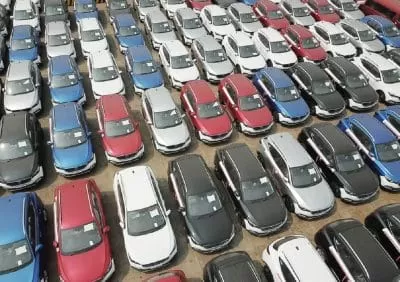In 2024, the automotive industry in Israel experienced significant changes that have had a major impact on the country’s economy and its people. These changes have been driven by a combination of technological advancements, government initiatives, and a shift in consumer preferences. As a result, the Israeli automotive industry has emerged as a major player in the global market, with a strong focus on innovation and sustainability.
One of the key drivers of change in the Israeli automotive industry has been the government’s push towards electric and autonomous vehicles. In 2024, the Israeli government announced a new policy that aims to phase out the sale of gasoline and diesel cars by 2030. This bold move has put Israel at the forefront of the global shift towards electric vehicles, with the country becoming a hub for research and development in this field.
The government’s policy has also led to a surge in demand for electric vehicles in Israel. In 2024, sales of electric cars in the country increased by 50%, with more and more people opting for these eco-friendly vehicles. This has not only reduced the country’s carbon footprint but has also created new opportunities for local manufacturers and startups to enter the market.
In addition to electric vehicles, the Israeli automotive industry has also seen a rise in the development of autonomous vehicles. With the government’s support and a favorable regulatory environment, several companies have emerged as leaders in this field. In 2024, Israel’s first fully autonomous car was unveiled, marking a major milestone for the country’s automotive industry. This achievement has put Israel on the map as a leader in autonomous vehicle technology and has attracted investments from major global players.
Apart from technological advancements, the Israeli automotive industry has also witnessed a shift in consumer preferences. In 2024, there was a significant increase in the demand for smaller, more fuel-efficient cars. This trend has been driven by rising fuel prices and a growing awareness of the need for sustainable transportation. As a result, local manufacturers have started producing more compact and efficient cars, catering to the changing needs of the market.
The changes in the Israeli automotive industry have not only benefited the country’s economy but have also had a positive impact on its people. With the rise of electric and autonomous vehicles, there has been a significant reduction in air pollution, making the country a healthier place to live. The government’s push towards sustainable transportation has also created new job opportunities, particularly in the field of research and development.
Moreover, the changes in the automotive industry have also brought about a cultural shift in Israel. In 2024, owning an electric or autonomous vehicle became a status symbol, with many people proudly showing off their eco-friendly cars. This has led to a change in the perception of the automotive industry, with it being seen as a driver of progress and innovation rather than just a means of transportation.
In conclusion, the automotive industry in Israel has undergone significant changes in 2024, driven by a combination of government policies, technological advancements, and changing consumer preferences. These changes have not only positioned Israel as a leader in the global market but have also had a positive impact on the country’s economy and its people. With a strong focus on innovation and sustainability, the Israeli automotive industry is set to continue its growth and make a significant contribution to the country’s future.







